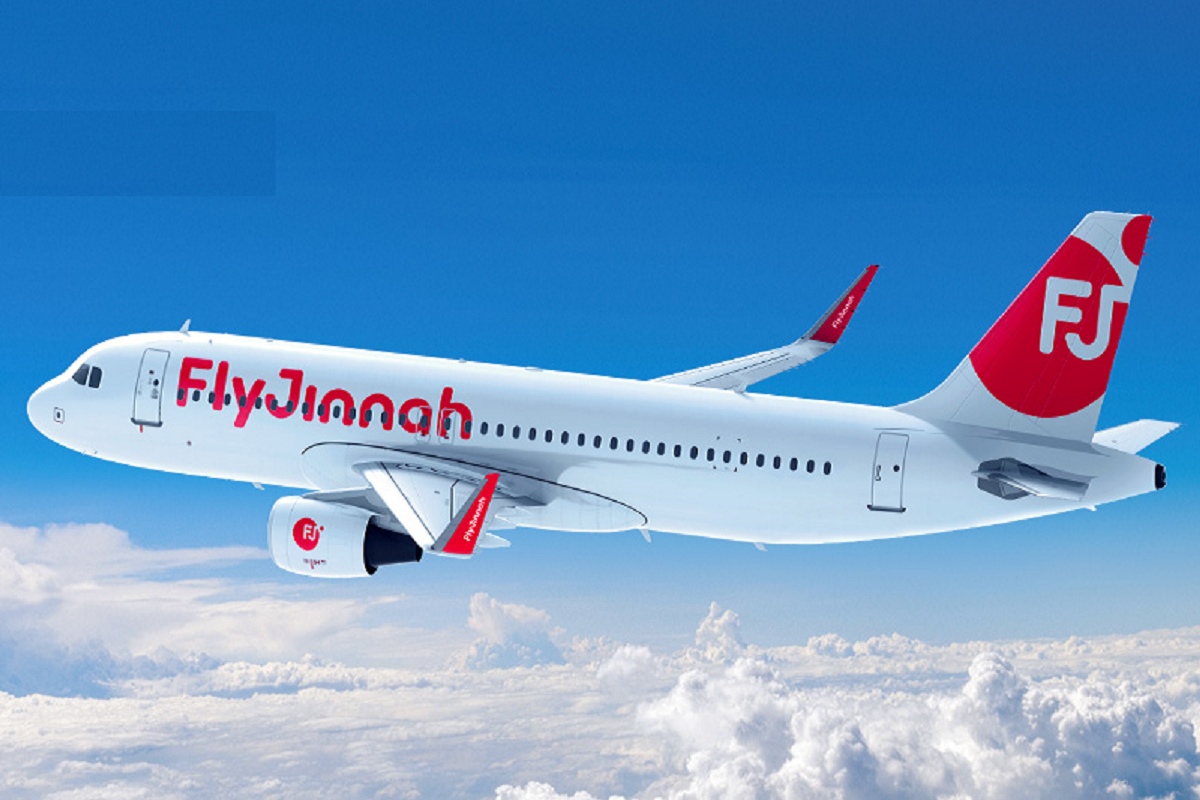Pakistan’s New Airline Fly Jinnah to Start Operations by June

Skift Take
The Pakistan airspace is set to get crowded as Fly Jinnah, a proposed low-cost carrier, prepares to take wing this year.
The airline is a joint venture between Air Arabia Group and Lakson Group, one of Pakistan’s leading and most diversified business conglomerates.
“Fly Jinnah will benefit from the experience of Air Arabia, which is its minority stakeholder,” an aviation expert from Pakistan said. "It will be essentially a low-cost airline, just like its partner."
"The airline will begin operating domestically with three leased A320 aircraft and will gradually expand to international routes after a year of successful domestic operations following the addition of aircraft," the insider said.
Having received a regular public transport license for the operation of passenger and cargo services in July 2021 from the Pakistan Civil Aviation Authority, the start-up airline aims to secure its air operator's certificate in June, after which it will soon commence domestic services.
The airline has already commenced recruitment drives for cabin crew in Karachi, Islamabad, and Lahore.
Fly Jinnah will be Pakistan's fourth private airline after Serene Air, Air Blue and Air Sial. The latest entrant - Air Sial, debuted in late 2020 and is currently operating domestically with plans to fly to the Middle East at a later date.
However, except for Air Blue, none of the other airlines are in good shape because of the pandemic and the raging competition, the expert said. The entry of Serene Air in 2017 saw Shaheen Air, Pakistan's second-largest airline, fold after almost 24 years of operation.
"While the state-owned Pakistan International Airlines, along with Shaheen Air and Air Blue (launched in 2004), had been making a lot of money on domestic routes, the entry of Serene Air in 2017 proved to be a disaster for all," the expert said. “Fly Jinnah will intensify the already stiff competition, which will benefit the consumers, but may prove to be detrimental to incumbent players and may even drive out a couple of them before the entry of Q-Airlines.”
Q-Airlines, the second carrier waiting in the wings, is a proposed charter that has just received a regular public transport license. The airline is expected to take at least one year to acquire its air operator's certificate. It will then be the fifth private carrier to enter the market, probably around 2023.
“As excessive capacity floated on domestic routes at one point, India’s domestic growth touched a staggering 20 percent, but at the cost of investors. The industry lost about $10 billion in a decade by selling below cost. Mergers and bankruptcies were the logical outcomes for these airlines. A similar situation could be expected here in Pakistan,” warned the aviation expert while drawing parallels with the neighboring Indian market.
Passengers ferried by Pakistan’s domestically-owned airlines stood at 7.4 million in 2019, while in 2020 the number was 3.7 million. This number had peaked in 2016, before the entry of Serene Air, when the airlines had carried a maximum of 9.63 million passengers.
Aviation has often served as a catalyst for economic growth. Countries in Asia and the subcontinent are looking at the sector to support domestic and international connectivity while creating jobs.
“Fly Jinnah will not only serve Pakistan’s aviation industry, but will also aim to contribute to the country’s infrastructure, tourism, business travel, and the creation of new jobs,” the airline’s chairman, Iqbal Ali Lakhani, had been quoted as saying in a press statement. "The airline will be a catalyst to the country’s economic growth."
Up, up and away?





